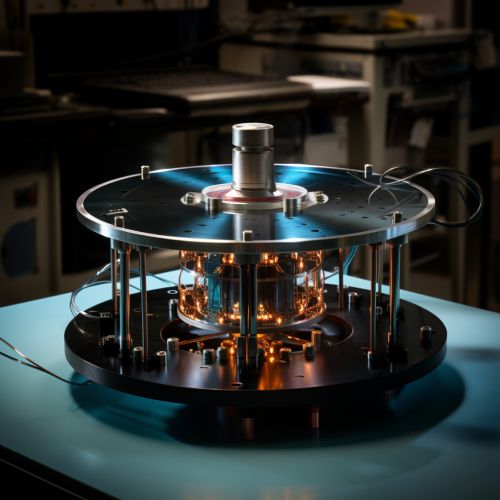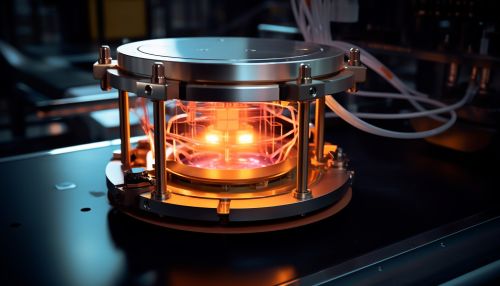Trapped ion quantum computing
Introduction
Trapped ion quantum computing is a type of quantum computing that utilizes ions as quantum bits, or qubits. This approach to quantum computing is based on the principles of quantum mechanics, a branch of physics that describes the behavior of particles at the smallest scales.
Principles of Operation
In trapped ion quantum computing, ions are trapped using electromagnetic fields in a device known as an ion trap. Each ion represents a qubit, the basic unit of quantum information. The quantum state of each ion can be manipulated using lasers or microwave radiation, allowing the performance of quantum operations.


The quantum state of an ion can exist in a superposition of states, meaning it can be in multiple states at once. This is a fundamental property of quantum mechanics known as quantum superposition. In addition, ions can be entangled, another quantum mechanical property, where the state of one ion is directly related to the state of another, no matter the distance between them. This property is known as quantum entanglement.
Advantages and Challenges
Trapped ion quantum computing has several advantages over other types of quantum computing. One of the main advantages is the high fidelity of quantum operations, which refers to the accuracy with which these operations are performed. This is due to the isolated nature of the ions, which are well-protected from environmental noise.
However, trapped ion quantum computing also faces several challenges. One of the main challenges is scalability, as increasing the number of ions in a single trap becomes increasingly difficult. This is due to the fact that ions repel each other due to their like charges, making it difficult to keep large numbers of ions in close proximity.
Current Research and Future Prospects
Research in trapped ion quantum computing is ongoing, with many research groups and companies around the world working on developing practical trapped ion quantum computers. These efforts are focused on overcoming the challenges associated with scalability and improving the fidelity of quantum operations.
The future prospects for trapped ion quantum computing are promising. With advances in technology and a better understanding of quantum mechanics, it is hoped that trapped ion quantum computers will play a key role in the future of computing, solving problems that are currently intractable for classical computers.
